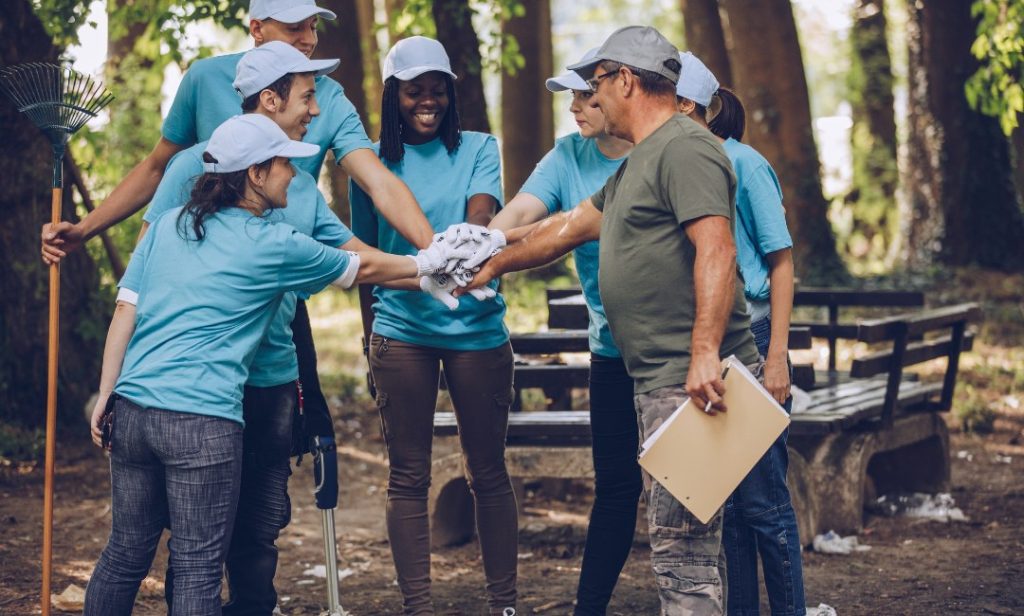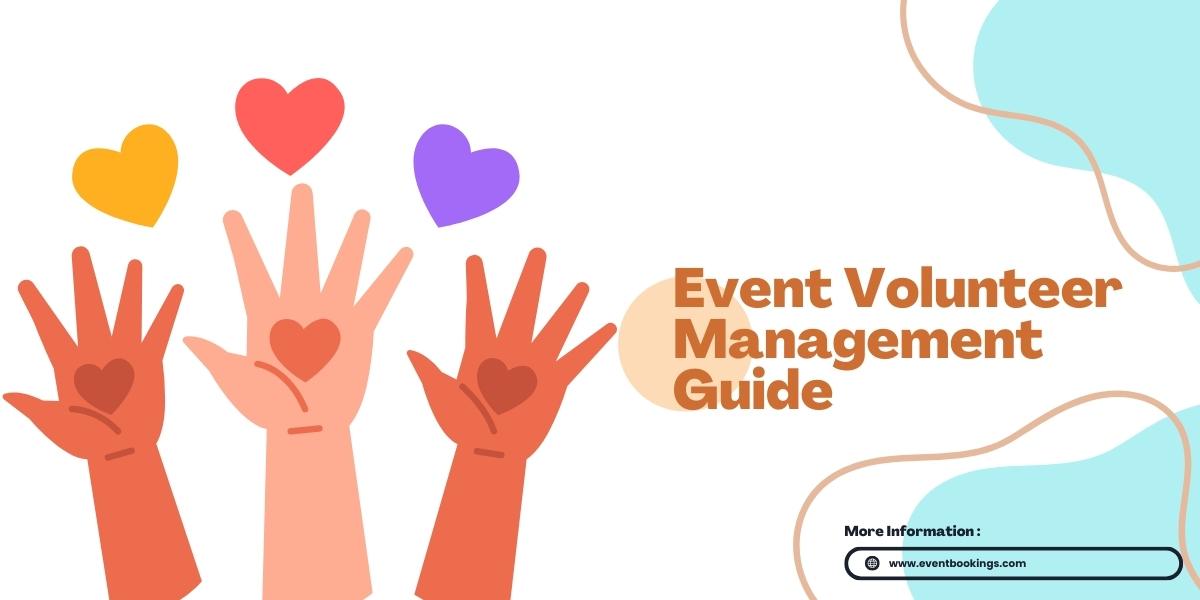Volunteers play a crucial role in the success of any event, whether it’s a small community gathering or a large-scale festival. Recruiting and organising event volunteers can be daunting, but with the right approach, it can be a smooth and rewarding experience. In this article, we will provide you with practical tips and strategies for effectively recruiting and organising volunteers for your event. From defining your volunteer needs and creating a volunteer recruitment plan to training and managing your volunteers, we will cover everything you need to know to make your event successful with the help of an enthusiastic and committed team of volunteers. So, whether you’re a seasoned event organiser or new to the game, read on to learn how to recruit and organise event volunteers like a pro.
Event volunteers recruitment strategy

To attract and engage volunteers, it’s essential to have a recruitment strategy in place. This involves leveraging social media, contacting local organisations, and creating a compelling volunteer job description. Communicating effectively with potential volunteers and building a strong volunteer community are also important. By developing a solid recruitment strategy, you can attract the right volunteers and increase the likelihood of a successful event.
1. Determining the required number
Determining the required number is one of the first steps in recruiting event volunteers. This involves assessing the tasks needed and estimating the number of volunteers needed to complete them. It’s important to consider factors such as the size and complexity of the event, the number of attendees, and the length of the event. By accurately determining the required number of volunteers, you can ensure that all tasks are covered and the event runs smoothly.
2. Offer your attendees
Individuals who have subscribed to your mailing list or have previously registered for your event are likely to be enthusiastic about it. You can contact them to assess their interest in volunteering. If they are interested, your volunteer-finding process will be minimal.
3. Announce an open day
Organisations can alleviate people’s fears of committing to a volunteer opportunity by providing them with sufficient information beforehand. One way to achieve this is by conducting recruitment activities such as online or in-person open days or information sessions.
These sessions provide an avenue to divulge more information about the organisation’s mission, the specific roles they are recruiting for, and the required skills or certifications. Additionally, potential volunteers can ask questions and seek clarification during these sessions.
4. Search in the community
When searching for community volunteers, it’s important to identify and reach out to relevant organisations that align with your event’s goals and mission. Schools, churches, and nonprofit organisations are often great places to start, as they typically have members passionate about giving back to their communities and willing to volunteer their time and skills.
5. Use social media
Social media platforms such as Facebook, Twitter, and LinkedIn can be powerful tools to attract potential volunteers. By creating social media posts and ads highlighting the benefits of volunteering and sharing updates about the event, you can reach a wider audience and attract passionate volunteers about your cause.
6. Offer past volunteers and donors
Your organisation likely has an Excel spreadsheet or paper forms containing the details of past volunteers and donors. Contacting these individuals and asking if they want to volunteer again is a good idea. You can encourage them to sign up for your event management system to avoid losing track of them in the future.
7. Consider offering perks
Providing incentives to potential volunteers can encourage them to offer their time. This could be in the form of special access to the event after completing their shift, merchandise discounts, or even tickets as a giveaway. The main objective is to make volunteers feel valued and appreciated.
Ways to manage volunteers

Once you complete the volunteer recruitment, it’s time to manage them. Creating a process that effectively manages volunteers requires a strategic approach. Every aspect of a volunteer program should be geared towards attracting volunteers, utilising their skills, and organising data to achieve program objectives. The success of a volunteer program is largely dependent on how well it is managed, and this can either make or break an organisation’s ability to achieve its goals. To enhance your volunteer management process and streamline it effectively, we have compiled a list of tips that can be implemented.
a) Arrange an orientation programme
Before the event, it’s important to brief volunteers on what to anticipate, whether it’s an in-person or virtual event. This should include information on what they should expect on the day, as well as what their responsibilities will be. Ensure volunteers know dress codes, any items they should bring, the meeting location, and the exact time they are required to report. It’s crucial to provide a designated contact person to whom volunteers can reach out if they have any questions or concerns.
b) Set goals
When making decisions regarding your volunteer program, it’s essential to keep your organisational and program goals plan in mind. Straying from these objectives can result in mission drift and ineffective operations. It’s important to ensure that your goals are aligned with your organisation’s mission and that all decisions are made with this in mind. This will help drive your organisation towards fulfilling its purpose and achieving its goals.
c) Get them trained
To retain volunteers, it’s important to provide a comprehensive training process that equips them to perform their roles successfully. Volunteers need proper guidance and support to be able to perform their duties effectively.
By investing in a training program, your organisation can demonstrate its commitment to building relationships, communicating its mission, and showing gratitude to volunteers for their time and effort. Training can also reinforce the work’s importance and motivate volunteers to continue their support.
d) Recognition and appreciation
It’s common to express appreciation for volunteers after an event has taken place. However, acknowledging and valuing volunteers during the onboarding process or on the event day can act as intrinsic motivation, encouraging them to give their best and make the event successful.
It’s crucial to show volunteers they are an integral part of the team from start to finish, beginning with a warm welcome and ending with a sincere thank you. Recognising their efforts formally after the event and providing them with event swag and special gifts is a great way to show gratitude for their contributions.
e) Communicate frequently
When it comes to volunteer management, effective communication is paramount. Regular and authentic communication can boost volunteer recruitment, retention, and engagement and increase the number of opportunities fulfilled. Building long-term relationships with volunteers is a process that hinges on communication. To achieve this, it’s important to prioritise authenticity and frequency in your communication strategy.
Strategy for managing volunteer mistakes:

Managing a team of volunteers can be daunting, even if you have implemented effective recruitment and retention strategies. In addition to these strategies, developing a plan for avoiding the most common mistakes in volunteer management is crucial.
(I) Don’t overlook volunteer needs
Although volunteer roles are often created to meet event requirements, it’s essential to consider volunteers’ motivations. Understanding why volunteers are interested in your event can help you tailor your program to meet their expectations. This may include offering benefits such as free admission, exclusive access, or unique gifts that align with their interests.
(II) Don’t break the law
It’s important to be aware of the guidelines established by the Australian Government Fair Work Ombudsman to distinguish between volunteers and employees. These guidelines can help ensure your organisation is not exploiting individuals by misclassifying them. It’s essential to review these guidelines to ensure that you are complying with legal requirements.
(III) Hire more than your demand
Hiring a surplus of volunteers is recommended, at least 10% more than you initially think you need. This is because various uncontrollable factors could affect your volunteer counts, such as no-shows or personality clashes among volunteers. Additionally, there may be an error in your initial calculation of the number of volunteers needed for a specific task. With extra volunteers, you can quickly fill gaps or shifts, relieve overworked volunteers, and ensure your event runs smoothly.
(V) Teamup a diverse crew
To host a diverse and inclusive event, it’s essential to have a diverse team of volunteers. When recruiting volunteers, strive to mix people of different ages, races, and abilities to make your event more dynamic. Since there are various roles to fill, such as concierge, cleaning crew, merchandise, marketing, and customer service, it’s important to communicate that age or physical ability is not a barrier to any particular role. This can help you attract volunteers who excel in specific tasks and demonstrate that you value people of all ages and abilities.
Final Thoughts

Volunteers are a valuable resource; it’s important to remember that they don’t volunteer for money. To keep them motivated, it’s crucial to understand why they’re volunteering, appreciate their contribution, and make them feel valued. Additionally, a strong volunteer recruitment and training strategy can make all the difference in managing volunteers. If volunteers feel they have been invested in and treated well, they’ll be more likely to return to assist with future events.




